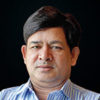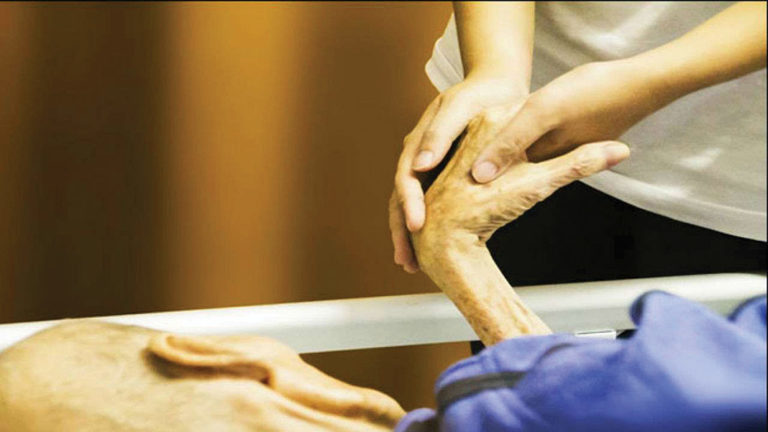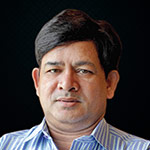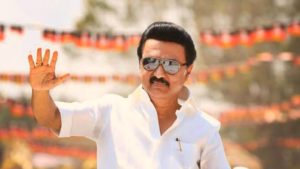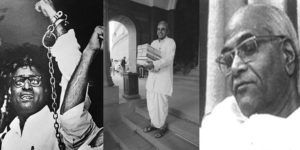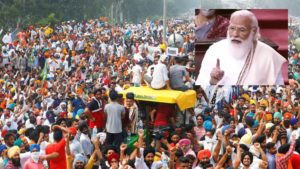In a country where passive euthanasia in varied forms has been practiced by followers of Jainism and Buddhism since ages it was considered a distant dream. But after a prolonged demand in a milestone verdict expanding the right to life to incorporate the right to die with dignity, the Supreme Court has legalized passive euthanasia. The verdict was delivered by a constitution bench of Chief Justice Dipak Misra and Justices AK Sikri, AM Khanwilkar, DY Chandrachud and Ashok Bhushan. Considering Indian sensitivities about life and death, it was a complex medical, philosophical, constitutional and religious jigsaw to come out with a convincing yet a logical judgement for the bench.
Now the law empowers a person of sound mind and health to make a ‘living will’ specifying that in the event of him/her slipping into a terminal medical condition in the future, his/her life should not be prolonged through life support system. The person concerned can also authorise, through the will, any relative or friend to decide in consultation with medical experts when to pull the plug.
CJI using very philosophical and poetical wordings said that “there comes a phase in life when the spring of life is frozen, the rain of circulation becomes dry, the movement of body becomes motionless, the rainbow of life becomes colourless and the word ‘life’ which one calls a dance in space and time becomes still and blurred and the inevitable death comes near to hold it as an octopus gripping firmly with its tentacles so that the person ‘shall rise up never’.”
The judgment continues: “A dying man who is terminally ill or in PVS can make a choice of premature extinction of his life as being a facet of Article 21. We must make it clear that as a part of the right to die with dignity in a case of a dying man who is terminally ill or in PVS, only passive euthanasia would come within the ambit of Article 21 and not the one which would fall within the description of active euthanasia in which positive steps are taken either by the treating physician or some other person.”
The decision was made as part of the verdict in a case involving Aruna Shanbaug, who had been in a Persistent Vegetative State (PVS) until her death in 2015. Shanbaug died on 18 May 2015 after being in a persistent vegetative state for nearly 42 years.
Aruna is not with us to narrate her sufferings, but Brittany Maynard, a US citizen, who was suffering from terminal brain cancer wrote a heart-wrenching article in 2014, which must be read. Following months of treatment and a worsening prognosis, Maynard made the decision to use Oregon’s laws (Death with Dignity Act, which allows terminally ill residents to end their lives with the assistance of a physician) to obtain a lethal dose of medication. She wrote an article “My right to death with dignity at 29” in 2014. It shows the pain and also the anguish of an individual who is suffering. I reproduce the complete article here –
On New Year’s Day, after months of suffering from debilitating headaches, I learned that I had brain cancer.I was 29 years old. I’d been married for just over a year. My husband and I were trying for a family.Our lives devolved into hospital stays, doctor consultations and medical research. Nine days after my initial diagnoses, I had a partial craniotomy and a partial resection of my temporal lobe. Both surgeries were an effort to stop the growth of my tumor.
In April, I learned that not only had my tumor come back, but it was more aggressive. Doctors gave me a prognosis of six months to live. Because my tumor is so large, doctors prescribed full brain radiation.I read about the side effects: The hair on my scalp would have been singed off. My scalp would be left covered with first-degree burns. My quality of life, as I knew it, would be gone.
After months of research, my family and I reached a heartbreaking conclusion: There is no treatment that would save my life, and the recommended treatments would have destroyed the time I had left.I considered passing away in hospice care at my San Francisco Bay-area home. But even with palliative medication, I could develop potentially morphine-resistant pain and suffer personality changes and verbal, cognitive and motor loss of virtually any kind.Because the rest of my body is young and healthy, I am likely to physically hang on for a long time even though cancer is eating my mind. I probably would have suffered in hospice care for weeks or even months. And my family would have had to watch that.
I did not want this nightmare scenario for my family, so I started researching death with dignity. It is an end-of-life option for mentally competent, terminally ill patients with a prognosis of six months or less to live. It would enable me to use the medical practice of aid in dying: I could request and receive a prescription from a physician for medication that I could self-ingest to end my dying process if it becomes unbearable.
I quickly decided that death with dignity was the best option for me and my family.We had to uproot from California to Oregon, because Oregon is one of only five states where death with dignity is authorized. I met the criteria for death with dignity in Oregon, but establishing residency in the state to make use of the law required a monumental number of changes. I had to find new physicians, establish residency in Portland, search for a new home, obtain a new driver’s license, change my voter registration and enlist people to take care of our animals, and my husband, Dan, had to take a leave of absence from his job. The vast majority of families do not have the flexibility, resources and time to make all these changes.
I’ve had the medication for weeks. I am not suicidal. If I were, I would have consumed that medication long ago. I do not want to die. But I am dying. And I want to die on my own terms.I would not tell anyone else that he or she should choose death with dignity. My question is: Who has the right to tell me that I don’t deserve this choice? That I deserve to suffer for weeks or months in tremendous amounts of physical and emotional pain? Why should anyone have the right to make that choice for me?
Now that I’ve had the prescription filled and it’s in my possession, I have experienced a tremendous sense of relief. And if I decide to change my mind about taking the medication, I will not take it.Having this choice at the end of my life has become incredibly important. It has given me a sense of peace during a tumultuous time that otherwise would be dominated by fear, uncertainty and pain.
Now, I’m able to move forward in my remaining days or weeks I have on this beautiful Earth, to seek joy and love and to spend time traveling to outdoor wonders of nature with those I love. And I know that I have a safety net.I plan to celebrate my husband’s birthday on October 26 with him and our family. Unless my condition improves dramatically, I will look to pass soon thereafter.
I hope for the sake of my fellow American citizens that I’ll never meet that this option is available to you. If you ever find yourself walking a mile in my shoes, I hope that you would at least be given the same choice and that no one tries to take it from you.When my suffering becomes too great, I can say to all those I love, “I love you; come be by my side, and come say goodbye as I pass into whatever’s next.” I will die upstairs in my bedroom with my husband, mother, stepfather and best friend by my side and pass peacefully. I can’t imagine trying to rob anyone else of that choice.
Justice Sikri has concluded in his separate yet concurrent judgment: “Right to health is part of Article 21. At the same time, it is also a harsh reality that everybody is not able to enjoy that right because of poverty or other reasons. The state is not in a position to translate into reality this right to health for all citizens. Thus, when citizens are not guaranteed the right to health, can they be denied the right to die with dignity?” And certainly your honour! No one can have a different viewpoint.



